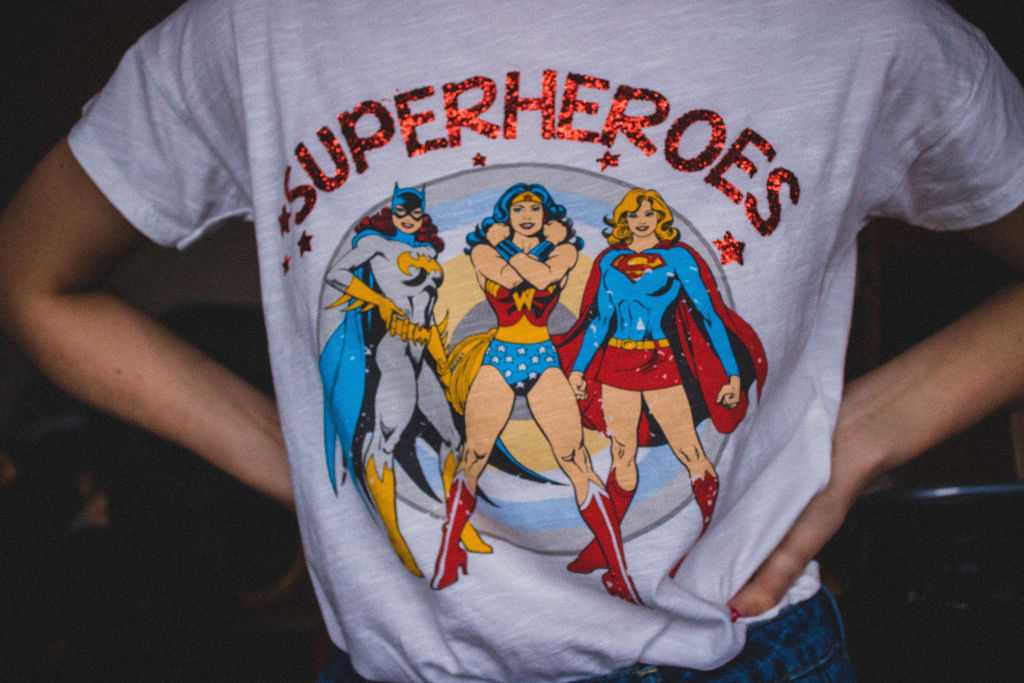Diversity in Film: Slowly Moving in the Right Direction
Entertainment is gradually becoming more diverse, but equality is still far off.

The last couple years have been advantageous to women in the entertainment industry, with the release of female-led films, female directors recognized with awards, and the reverberations of the #MeToo Movement still moving through Hollywood. Although films like Wonder Woman and Black Panther opened the door to a world of inclusion, most of the industry still has yet to enter.
'Wonder Woman' wasn’t enough.
Gal Gadot’s superhero debut, while highly praised and successful in the box office, continued to play into the norms of sexist portrayals of women under the mask of feminism. The effort was there, but it is still a long way from being equal to male-led superhero movies. On the one hand, she is what audiences have been craving—strong, leading, independent. But on the other, she is what audiences are begging to steer away from — flawless, exposed, and extremely sexy.
The most obvious critique is her revealing outfit, exposing her chest and legs. When the film was released, the internet blew up with excitement over being able to see her thigh jiggle in one scene.
If a thigh jiggle is monumental to us, it is long past time to lift our standards off the ground. Why can we see her thighs anyway? Is she competing with the national gymnastics team or fighting villains? Wouldn’t World War I be much more difficult with nothing but a gold metal headband keeping your long, perfectly curled hair from flying into your face?
Gender equality is more than giving women the spotlight from time to time.
Having one female-led movie a year is not satisfying the desire for more women in film and television. While Wonder Woman, Black Panther, and Captain Marvel are changing history, they are not where the industry’s efforts should end. For one thing, we need more diversity of genre when it comes to women and people of color in leading roles. Superhero blockbusters are an excellent starting point, though just one planet in the vast narrative universe.
We don’t need feminist movies, but we need movies that are feminist.
Anna Chlumsky, who plays Amy Brookheimer on HBO’s Veep explained it nicely to Cloe Schama for an interview with Vogue. She said, “We’re not doing a feminist show; we’re doing a show where the character is female…” This is the defining characteristic of a truly progressive and extremely necessary show. Veep is not advertised as being “feminist,” nor does it tout its strong female characters as a major selling point. And it shouldn’t have to.
The feminism, tolerance, and diversity the media needs to achieve is the kind that requires no overt acknowledgment. The protagonist is a strong individual—who just so happens to be female. There is so much more to her story than her gender identity, as there should be. Female characters are just as valid as male characters, and their depth should reflect that.
The future should lack labels.
The world the media is striving for (and desperately trying to achieve) is one without labels. We will no longer describe movies as being “female-led” or “diverse.” Black Panther should just be Black Panther, gaining attention for nothing but its unique, engaging plot, mesmerizing special effects, and much-anticipated entrance into the Marvel universe. Captain Marvel should be revered for its groundbreaking depiction of the most powerful superhero ever, its cast, and its contribution to the comic movie world.
An environment where minorities are acknowledged as just as significant as majorities, where their work is measured solely on content and not on makeup, and where they are plenty will benefit the entire industry—and the watching world.
About the Creator
Carson Lane
Carson Lane is an award-winning screenwriter and photographer.






Comments
There are no comments for this story
Be the first to respond and start the conversation.